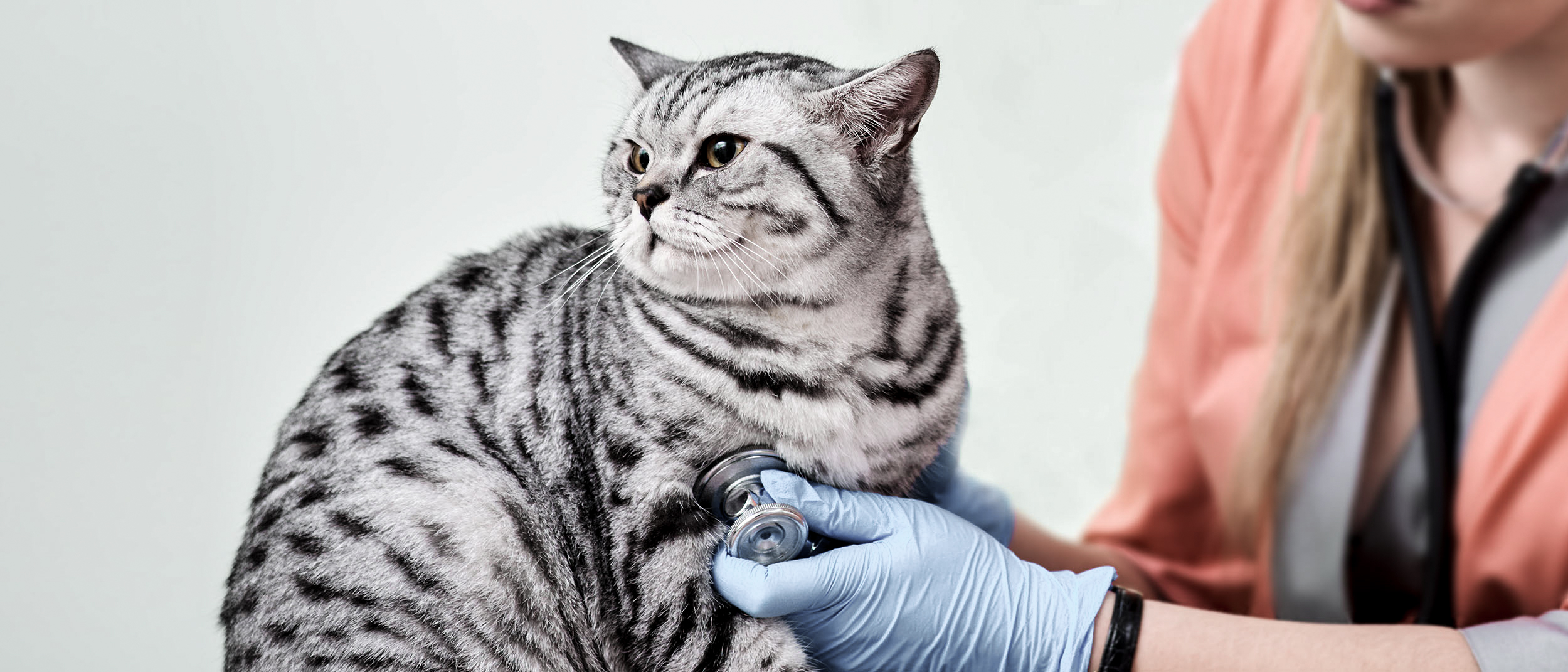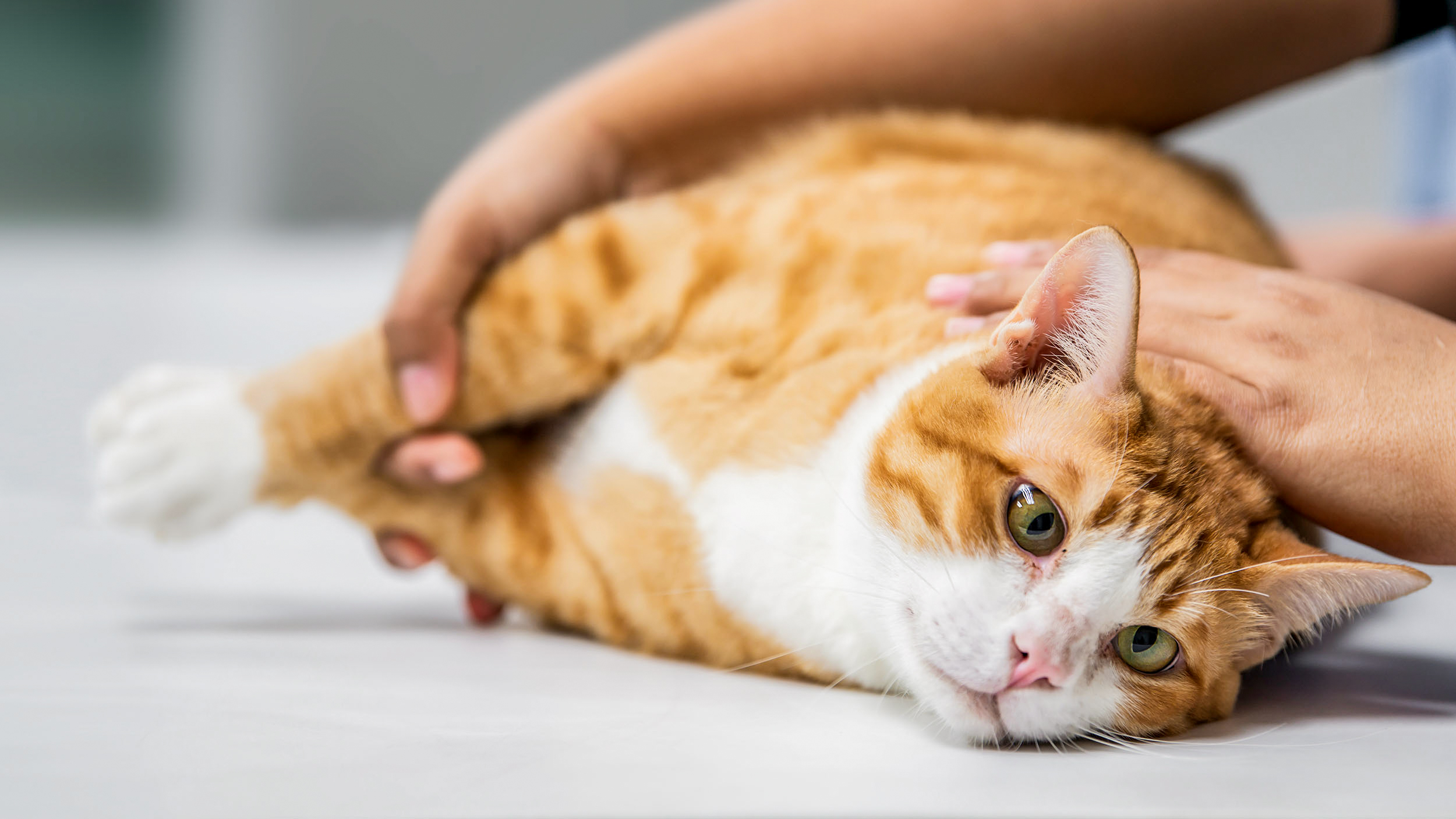Health risks of overweight and obese cats

Obesity in cats is an increasing issue, just as it is in the human population. It can have serious, lifelong impact on a cat, affecting their health, quality of life and bodily functions.
Are some cats predisposed to obesity?
There are certain factors which may make your cat more likely to struggle with weight gain and obesity:
- If they are a short-haired European type cat, rather than a pure breed
- If they are between five and 10 years old, when their activity begins to decline
- If they are fed very frequently and more than the recommended portion
- If they are nervous, depressed or have suffered with mental or emotional strain
- If they’re male
If your cat has been spayed or neutered, it’s also more likely to gain weight; the operation reduces your cat’s energy requirement by just under a third, but their appetite can go up between 18% and 26%.
Why does being overweight or obese affect my cat?
When your cat is overweight or obese, its body begins to store the food it consumes as fat, rather than using it up, because the energy it's expending is less than the energy it's taking in. This fat then starts to affect bodily functions as it infiltrates specific organs – such as the liver – or ‘coats’ others, like arteries. The extra weight puts pressure on your cat’s internal system and joints, leading to a series of health risks.

Know the warning signs for your cat’s weight
If you notice that your cat is losing or gaining weight very suddenly, this can indicate a greater underlying problem. If their weight loss or gain is accompanied by digestive problems, vomiting, diarrhoea, changes in their skin or coat quality, and changes in their mood, it’s crucial to consult a vet who will be able to make a full diagnosis.
When your cat is its ideal weight, it will have a much better chance to lead a healthy, contented life involving a good diet, play, exercise and companionship. Recognising when its weight may be a problem means you’re able to pick up on any issues quickly and resolve them, getting your cat back on the path to a long and healthy life.
Find a vet
If you have any concerns about your cat’s health, consult a vet for professional advice.
Like & share this page